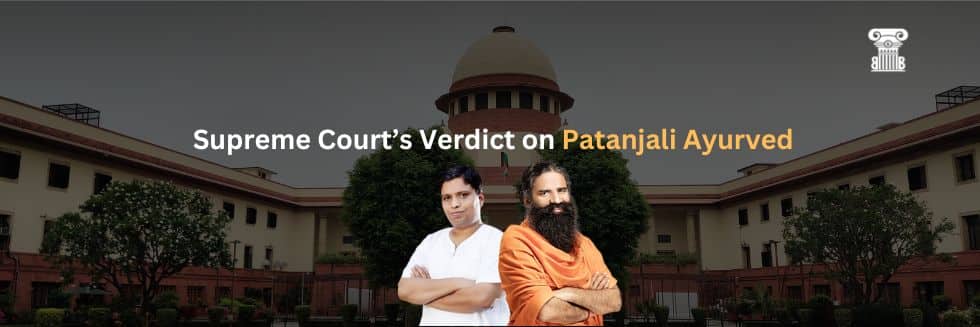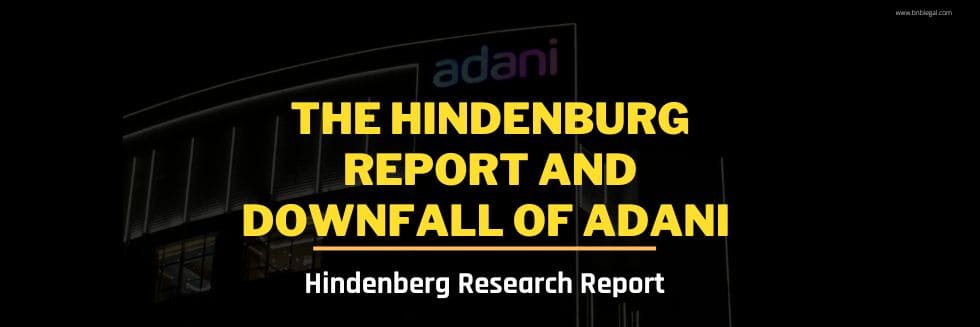Introduction
In a landmark move, the Competition Commission of India (CCI) recently wielded its regulatory power to address competition concerns in the online travel and hospitality sector in the case of Federation of Hotel and Restaurant Association of India (FHRAI) and Anr. vs. MakeMyTrip India Pvt. Ltd., scrutinising industry giants like MakeMyTrip-Goibibo (hereinafter, “MMT-Go”) and OYO Rooms[1]. This article delves into the profound implications of the CCI’s sanctions, assessing their value and importance in curbing future anti-competitive practices and fostering a fairer landscape for both businesses and consumers. From setting precedents to instigating a deterrence effect, the CCI’s order resonates far beyond the immediate case, promising to reshape the dynamics of the industry.
Parties and Allegations
Treebo, FabHotels and the Federation of Hotel & Restaurant Associations of India (FHRAI) were the informants in the present case. The allegations made against MMT-Go were its denial to Treebo and FabHotels to access the market on a refusal to pay exorbitant commissions and the room parity mandate that ultimately affected consumer welfare and also affected the participation of independent hotels in the relevant market.
MMT-Go was also alleged to have indulged in the practice of predatory pricing. The allegation outlines MMT-Go’s approach to competing in the market. Para 8 of the CCI order articulates the approach by saying that while competing on discounts rather than prices, MMT-Go plays the game based on its deep pockets, i.e., how much of its capital it can sacrifice to build a consumer base. This approach prima facie shows that any small players in the market, devoid of the volume of capital that MMT-Go has, wouldn’t have a fair chance of competing. Constant under-cutting prices and providing rooms less than the average room rate is anti-competitive.
There were also allegations of preferential treatment of OYO by a confidential agreement between MMT-Go and OYO. In other allegations of MMT-Go’s abuse of its dominant position, MMT-Go was alleged to have charged a rate of commission higher than any other Online Travel Agencies (“OTAs”). Upon request of hotel partners to be delisted from their platform, they were advertised as having no rooms available. This severely affected the business of those hotels. The rationale here is that a customer while visiting a trusted platform, such as MMT-Go’s, would trust the information provided on such a platform. A customer wouldn’t bother to check other platforms, and the partner hotel would suffer from false advertising.[2]
The Investigation and Approach: An Analysis
One of the salient features of the approach taken by the Director General of the Competition Commission of India in the initial inquiry was the determination of the relevant market. Concerning the visibility and the range of prices offered by Online Travel Agencies, the DG concluded that the offline market could not substitute the online market. Therefore, the relevant market for MMT-Go was classified as “the market for online intermediation services for booking of hotels in India”. MMT-Go challenged the delineation, but according to the submissions made in the counter-challenge, some interesting observations came to light.
In delineating online intermediary services from the online market as a whole (where Google, Facebook, TikTok, etc., would also provide relevant platforms), it was held that search engines and other platforms could only provide redirection to the main website and do not provide direct booking services. This observation also highlights the purpose of delineation – to determine which players would fall in the market. According to the order of the Commission, the relevant market would only consist of Online Travel Agencies.
The same was also backed by statistics that showed internet penetration in India to be around 42% in 2020 and online hotel bookings at 30%. This shows a high degree of correlation between both variables, which leads us to the conclusion that with an increase in penetration, the online booking of hotels would improve. This exclusive correlation also minimises the relation between the offline market for hotels and the online booking of hotels.
The Evolving Interpretation of “Relevant Market”
The narrow interpretation of the relevant market in the case of online distribution is one of the more recent developments in the approach taken by the Commission in delineating the relevant market. The argument that forms the premise of this decision is that, in the opinion of the Commission, there is no substitutability between the online and offline market. In their opinion, a consumer would search and book a hotel on the same platform. This is a departure from the Snapdeal case of 2014[3].
In the Snapdeal case[4], the Commission held that offline and online markets could not be delineated as distinct markets since a consumer would survey the online market for a specific product, check its prices, and then compare it with offline prices. The consumer would then choose based on his cost and benefit considerations. In this case, the online market could be substituted by the online market, and vice-versa.
In taking a narrow interpretation of the relevant market in the present case, the Commission has also reiterated the importance of context in deciding a present case. This case also remains part of the developing approach of the Commission, where the players’ business models are thoroughly analysed[5]. The immediate brunt of such a narrow interpretation of the “relevant market” would be faced by the party against whom the allegations of abuse of dominant position have been levelled. If such a corporation is not considered a dominant player in the wider market, and in the narrow relevant market, the corporation is considered to be such, it would make the process of finding a violation under section 4[6] of the Competition Act easier.
Therefore, “artificial dominance”[7] is asserted by putting the offline players in a different market altogether. Such an approach is a positive indication since it would further restrict online players from abusing their dominant position. Still, it would also lead to a lack of recourse for such players against abusing a dominant position by the offline players, even if it would have any detrimental effects on the online player. The argument for lack of resources can easily be defeated by citing alternative resolutions such as the traditional court system if not necessarily the Competition Commission of India.
The approach of the Commission is developing with every decision. It marked a decisive change from Ashish Ahuja vs. Snapdeal[8] to All India Online Vendors Association vs. Flipkart[9], where Flipkart was alleged to have been giving preferential treatment to WS Retail by selling its products at a discounted price, as the Commission moved from a narrow interpretation to a wider interpretation of “relevant market”. The current precedence gives primacy to the facts and circumstances of the case when arriving at the relevant market.
With the advent of the e-commerce industry and the ever-growing Indian economy, it becomes essential to keep a regulatory check on the anti-competitive practices by such platforms that could potentially harm the economy by eroding consumer welfare and monopolising the trade.
Measures Taken by the CCI
In a departure from Excel Corp Care Ltd. vs. CCI[10], the CCI considered the total turnover of MMT-Go in imposing a penalty to the proportion of 5%. However, this penalty has been stayed by the Delhi High Court[11] upon paying 10% of the total penalty imposed for the admission of appeal. The levy of 10% was allowed on the pretext that the remaining 90% of the corpus won’t be levied. After granting a stay, the Delhi High Court directed the appellants to seek further relief from the National Competition Law Appellate Tribunal.
In terms of non-monetary measures, the following orders were made under Section 27 of the Competition Act:
a. Order to modify MMT-Go’s agreements with hotels to remove the price and room availability parity obligations imposed on hotel partners concerning other agencies.
b. Order to modify its agreements to remove exclusivity conditions.
c. Direction to provide fair, transparent and non-discriminatory access to partner hotels and hotel chains by objectively formulating the terms and conditions and notifying the hotel partners about such modifications.
d. Direction to make transparent disclosures on its platform about properties that are not available – either because of termination of a contractual agreement or the exhaustion of the quota of rooms allotted to MMT-Go by such partner.
For the non-monetary measures, no relief was granted by the Delhi High Court to the appellants. The measures directly sought to remedy the harm done through the anti-competitive conduct by MMT-Go, although the appellant still sought a stay on these orders.
Because the Commission probed into the appellant’s business model, a relevant market delineated allowed the Commission to assess the practices by MMT-Go as anti-competitive.
Impact of the Behavioural Sanctions
As discussed, the measures aimed at curbing the practices being carried on by MMT-Go not only attracted super-normal profits for the appellant but also caused a deadweight loss in the tourism economy by harming the hotel partners by causing monetary loss.
One of the behavioural sanctions was a direction to do away with the parity clauses, which, according to the Commission, couldn’t be justified as an industry practice. Such clauses allowed the appellants to undercut their rival companies. The profits were not sacrificed, for a monetary equivalent was levied from the hotel partners in the form of a commission. The sanction ensures the provision of a level playing field for budget hotels, and sets a precedent in the use of parity clauses, that cause injustice not only to the partner hotels but to the relevant market as a whole, with some effects in the surrounding markets as well.
The removal of exclusivity conditions looks at ensuring uniformity in the multitude of opportunities provided to the partner hotels in expanding their business, increasing their visibility in the market, and participating in the platform. It also ensures a transparent approach in finalising agreements with the partner hotels, when coupled with the third behavioural sanction that provides for a non-discriminatory, fair and transparent approach in providing access to the hotels through the formulation of an objective set of terms and conditions.
Finally, the last behavioural sanction directs the platform to not indulge in dishonest practices wherein because of the false information provided on the platform led to a potential loss in business for the partner hotels.
There is no doubt that the Commission’s response was prompt, but MMT-Go’s practices dealt considerable harm to the market and its players. Perhaps these events form a strong reason for a codification in the realm of Indian Tourism Law where guidelines for conduct by hotels are mentioned among other sections.
Potential for a Tourism Law Enactment
Tourist welfare is one of the primary subject matters of a justified Tourism Enactment. With the advent of tourism in India, also providing a platform for online hotel booking intermediaries to rise, and the MMT-Go fiasco being incidental to such developments, it becomes increasingly important for an enactment that aims to lay down guidelines that prevent such conduct or provide remedies for it.
Although the Commission adjudicated in its undisputable realm, some elements of the MMT-Go case also fall under the ambit of consumer welfare, and therefore, a law must be enacted to safeguard the interests of such consumers.
In the common parlance, the tourism law is often understood to mean a law governing the conduct of tourists, but since the Consumer Protection Act[12] is also considered a tourism enactment in some regards (safeguarding the interests of tourists in terms of hotel-booking etc.), perhaps, there must be a law that governs and regulates the conduct of service providers in the tourism sector, namely hotels, travel agencies, online travel agencies etc. Making them the subject of such legislation would also warrant providing a remedial mechanism to them in case of any wrongs committed against them.
A legal framework must, therefore, legislate only on the subjects that concern such actors and must not encroach on the jurisdiction of authorities such as the Competition Commission of India. Instead, such an enactment must complement and assist such authorities’ investigation and procedure. One way this can be achieved is by categorising the actors into different slabs based on their profit-making capacity, the range of services they offer, the capital of such actors, and the nature of their management, among other factors.
As a lesson learned from the MMT-Go case, the enactment must look to implement transparent and non-discriminatory regulations for market entry that ensure fair opportunities for entry into the market without unnecessary barriers. A licensing and certification system to ensure certain standards is also warranted, to ensure fair competition based on merit, along with a clause for transparency in agreements that ensures a provision for clear and accurate information to consumers.
As far as business practices are concerned, the model tourism law must also outline a mandatory code of conduct for ethical business practices that contain rules and regulations on pricing and advertising etc.
Conclusion
The CCI’s landmark decision on MMT-Go reflects a vital moment in shaping the competitive landscape of India’s online travel and hospitality sector. The comprehensive sanctions, from addressing predatory pricing to modifying agreements, underscore the commitment to fostering fair competition and protecting consumer welfare. The delineation of a narrow relevant market highlights the evolving approach of the Commission, emphasising the need for tailored regulatory measures. The MMT-Go fiasco further underscores the potential for a dedicated Tourism Law, safeguarding the interests of both consumers and service providers while promoting transparent, non-discriminatory practices in the dynamic tourism industry.
[1] Case no. 14 of 2019.
[2] Indulia, B., Ridhi and Mishra, R. (2023) Interim measures in antitrust cases in India, SCC Blog.
[3] Ashish Ahuja v. Snapdeal, Case No. 17/2014.
[4] Ibid.
[5] Prateek, P. (2022) CCI imposes penalties on Indian Ota Makemytrip and Budget Hotel Franchise Oyo Antitrust, EU competition – India.
[6] The Competition Act, 2002, § 4, No. 12, Acts of Parliament, 2003 (India).
[7] Cbcl (2023) Revisiting the MMT-goibibo case – IS CCI geared up? CBCL.
[8] supra note 3.
[9] Case No. 20/2018.
[10] (2017) 8 SCC 47.
[11] MakeMyTrip India Pvt Ltd MMT & Anr. v. Competition Commission of India 2022/DHC/005564.
[12] Consumer Protection Act, No. 35, Acts of Parliament, 2019 (India).
This article is written and submitted by Vansh Gaint during his course of internship at B&B Associates LLP. Vansh is a 2nd year BA LLB student at Gujarat National Law University.









